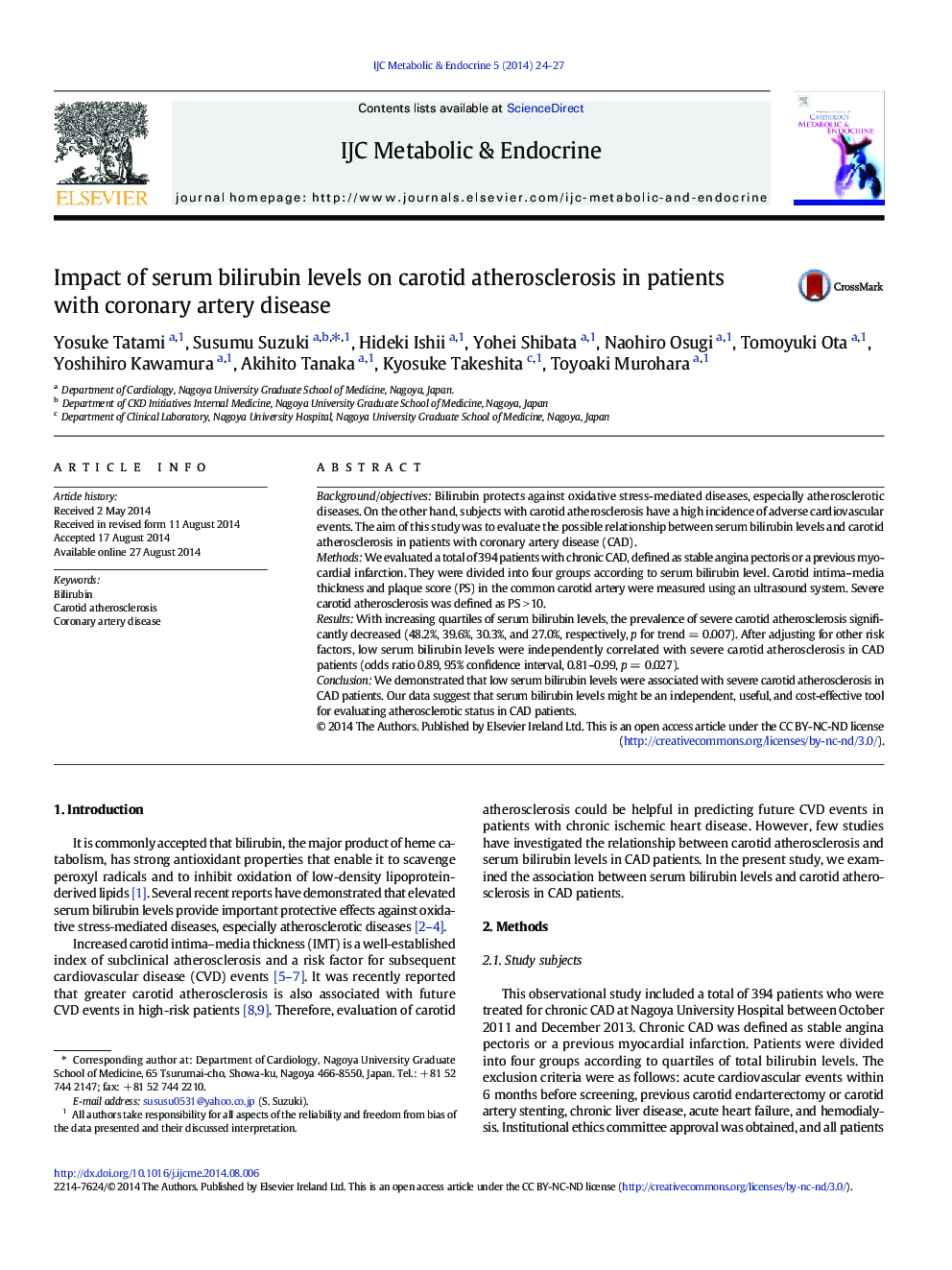| Article ID | Journal | Published Year | Pages | File Type |
|---|---|---|---|---|
| 2927263 | IJC Metabolic & Endocrine | 2014 | 4 Pages |
Background/objectivesBilirubin protects against oxidative stress-mediated diseases, especially atherosclerotic diseases. On the other hand, subjects with carotid atherosclerosis have a high incidence of adverse cardiovascular events. The aim of this study was to evaluate the possible relationship between serum bilirubin levels and carotid atherosclerosis in patients with coronary artery disease (CAD).MethodsWe evaluated a total of 394 patients with chronic CAD, defined as stable angina pectoris or a previous myocardial infarction. They were divided into four groups according to serum bilirubin level. Carotid intima–media thickness and plaque score (PS) in the common carotid artery were measured using an ultrasound system. Severe carotid atherosclerosis was defined as PS > 10.ResultsWith increasing quartiles of serum bilirubin levels, the prevalence of severe carotid atherosclerosis significantly decreased (48.2%, 39.6%, 30.3%, and 27.0%, respectively, p for trend = 0.007). After adjusting for other risk factors, low serum bilirubin levels were independently correlated with severe carotid atherosclerosis in CAD patients (odds ratio 0.89, 95% confidence interval, 0.81–0.99, p = 0.027).ConclusionWe demonstrated that low serum bilirubin levels were associated with severe carotid atherosclerosis in CAD patients. Our data suggest that serum bilirubin levels might be an independent, useful, and cost-effective tool for evaluating atherosclerotic status in CAD patients.
